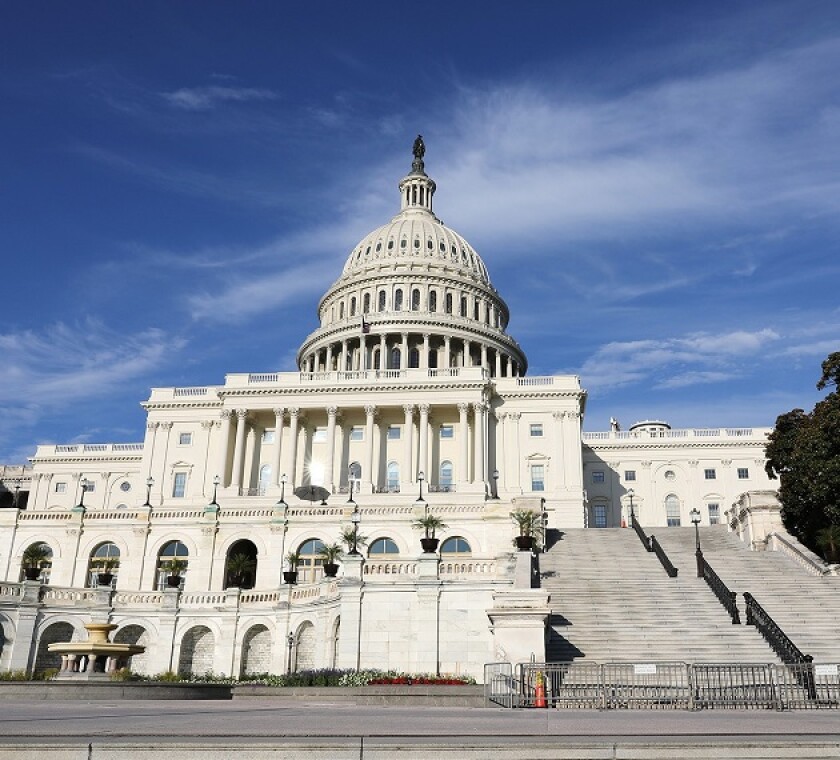The US has been eager to defend the interests of Silicon Valley in a world increasingly prone to unilateral action, while the OECD tries to settle the digital tax debate. There may be hope of an agreement in sight, but the stakes could not be higher.
Lafayette ‘Chip’ Harter, who advises the US Treasury on global tax policy, expressed concerns that there is no alternative if the OECD fails to produce a consensus.
“In our view, the alternative to reaching an agreement at the OECD is not the status quo,” Harter said. “The international tax system is at a pivotal, even perilous, moment in its history.”
“The international system is breaking down,” he said, adding, “We’ve seen the proliferation of unilateral measures around the world.”
Pascal Saint-Amans, head of the OECD’s tax centre, agreed with Harter. “If we don’t get an agreement, the status quo means unilateral measures,” Saint-Amans said. “It’s not just about a handful of American companies, all businesses would be affected by this.”
“This isn’t just an issue for the G7 countries,” he stressed, adding, “It’s an issue for the whole world.”
It’s no accident that the OECD has drawn on US tax reform for its proposed solution to digital tax. The global intangible low-taxed income (GILTI) rules have become a blueprint for a plan to set a floor underneath corporate tax planning worldwide.
The global anti-base erosion (GloBE) proposal sets out to establish a minimum rate worldwide. This may be welcome news for US taxpayers, who see it as a way to level the playing field, but there is yet to be any final agreement.
“We hope we reach a political agreement soon, so we can work even harder on turning it into legal instruments,” said Saint-Amans.
The OECD is set to publish its next report on digital tax in October, but the 2020 deadline for a final agreement may have to be extended.
Exporting US tax reform
It’s not just the OECD. France and Germany are eying the US provisions for a quick-fix to corporate tax avoidance precisely because past measures have been so elaborate and difficult to execute. US taxpayers might feel differently.
US companies have found the GILTI rules difficult to navigate. Yet the minimum rate may still offer greater simplicity and ease of administration than past policies.
“Sometimes I get this feeling that there is an export market for anti-avoidance provisions. Germany was very successful in exporting the interest barrier in 2007 and now the US is exporting GILTI,” said Wolfgang Schön, professor of tax law at the Max Planck Institute for Tax Law and Public Finance.
“The GILTI proposal is a fresh start because it does away with the distinctions of passive and active income, [which are] problematic distinctions for each country,” the professor explained.
“If you do anything on a country by country basis you are stuck in a situation that might be very complicated.”
What this would mean for controlled foreign corporations (CFCs) is a big question. Many European governments see CFC regimes as a necessity, but the EU rules make the economic substance test difficult to apply in practice.
The GILTI rules offer a clear, viable alternative. However, it’s unclear if the CFC regimes would remain in force with a global minimum rate, or if they would be replaced. European companies fear that the US-style rules could just be dropped on top of the minefield of CFC rules.
“This might be a nightmare for major multinational groups to comply with CFC rules and the GloBE proposal,” Schön said. “It might really overdo the whole thing.”
There are some governments that would be happy to make life difficult for companies on tax matters given the state of public opinion. So it may not be safe to assume the GloBE proposal will replace past policies that didn’t deliver.
It’s no wonder that world powers see hope in advancing a minimum rate. The risk of the international order giving way to a world of unilateral, uncoordinated measures may still be the threat that policymakers fear more than anything.











